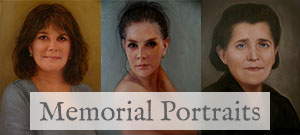
The photographs of the three-year-old Syrian boy, Aylan Kurdi, drowned and washed up on a Turkish beach en route to Greece, humanized and symbolized the plight of refugees in Europe. His limp body, the tiny feet with shoes still on, galvanized the world. I encountered friends on social media urging us not to share or tweet the images; saying that it was just another way of experiencing a detached yet emotional thrill, a false feeling of doing something, exercising our dubious Western privilege. Others felt it their duty to bear witness to his suffering and death, at the very least. But one dead refugee is not ten million living refugees knocking at your door, and here lies the dilemma.
I was in Syria with my husband in 2002 – researching the seed of an idea that was to eventually become my novel. We stayed in Damascus then made our way by bus to Palmyra (known in Arabic as Tadmor); the jewel of the Syrian Desert. In 45 degree heat, we left the bus and wandered through Hellenistic temples and towering burial grounds. There was not a soul in sight. The silence was as oppressive as the midday sun, beating down on our heads. The sky was immense, unforgiving, so pale blue it looked white in the glare. As we rounded a corner, suddenly we were surrounded by camels and Bedouin in red and white checked keffiyeh, offered gifts of plump dates, whole palm boughs laden with fruit.
We met many people on that trip; all welcoming, all overly hospitable, all greeting us with the smiling phrase: ‘Welcome in Syria!’ There was none of the feeling of harassment you can sometimes feel in Turkey or Morocco. There was no sense of being seen as the cashed-up, clueless tourist. Even in the huge, modern city of Damascus, we were seen first and foremost as fellow humans, with a personal history that was worth finding out. Every Syrian we met was willing to engage on that level of compassion and curiosity. Which makes the destruction of their country and the displacement of eleven million people all the more tragic.
We moved house recently and I found my old, bulging address book. Within it, business cards and the hand-written scrawls of people briefly met in Syria, people we once drank fresh mint tea with, people who invited us into their homes. What has become now of Ibrahim, the tall, big-chested traditional singer, who could meet you and learn your name, then in an instant weave an elaborate song out of what he perceived? What fate has befallen Mohammed Al-Torki – the archaeological guide who sat at the entrance of the Palmyra ruins on his folding chair, reading poetry under a faded umbrella? Or the redheaded, blue-eyed camel-driver (his ancestry a legacy of the Crusades) who gave me a ride through the ruins on his pure-white long-lashed camel? I’ve tried to contact them. Silence. They’ve fallen into the black maw of ISIS-controlled Palmyra, the hell-hole Syria has now become.
Germany has opened its borders to whoever can make it there, and Turkey already hosts 1.6 million Syrian refugees. Even struggling Greece has now absorbed hundreds of thousands. In light of these numbers, Australia’s inhumane border policy borders on psychopathic. I know the common caveats: there are eleven million refugees from Syria alone, let alone those from Iraq and Afghanistan. We can’t take them all. But. If we save just one precious human life – isn’t that enough? We all know – intensely and viscerally know – how precious we are to our families, friends, least of all to ourselves. How we feel central in our own lives and intimate circle, how valued, how crucial to our universe. That is exactly how each and every refugee feels too. There is no hierarchy of suffering or belonging, hope or despair.
We in the West are complicit in their continuing pain. Our politicians, our foreign policies, our economic systems, our systematic carving-up of the Middle East for our own ends after World War One – all this has created the conflict forcing these people to leave their homes, their jobs, their communities and in some cases their families – and to get on boats they know are a life-or-death risk. Think about that little boy, Aylan. He was just as loved and cherished as your children, and as mine. We treat our dogs better than these refugees are treated by our government. I know I do. And each time I buy food for my dog, each time I take her for walks, pat her, play with her, I feel a shaming sense of guilt.
I’m coming to a point where I feel it’s not enough to share photos, make donations, go to rallies. Yes, they are all good things to do. But they make a limited difference. I feel that direct action is needed. Maybe we need to follow the European model of hosting a refugee in a spare room in our homes. Last summer, I met an Iraqi refugee at Bilgola Beach, who had just come out of detention. His absolute joy at diving into the ocean pool was not only a delight to witness, but also heartbreaking. He was there through the time, energy and good heart of an Australian woman.
Are we able to sacrifice our comfort for a fellow human being? I ask myself as much as I ask you. If we can save one precious human life, then that may be enough, for now.



